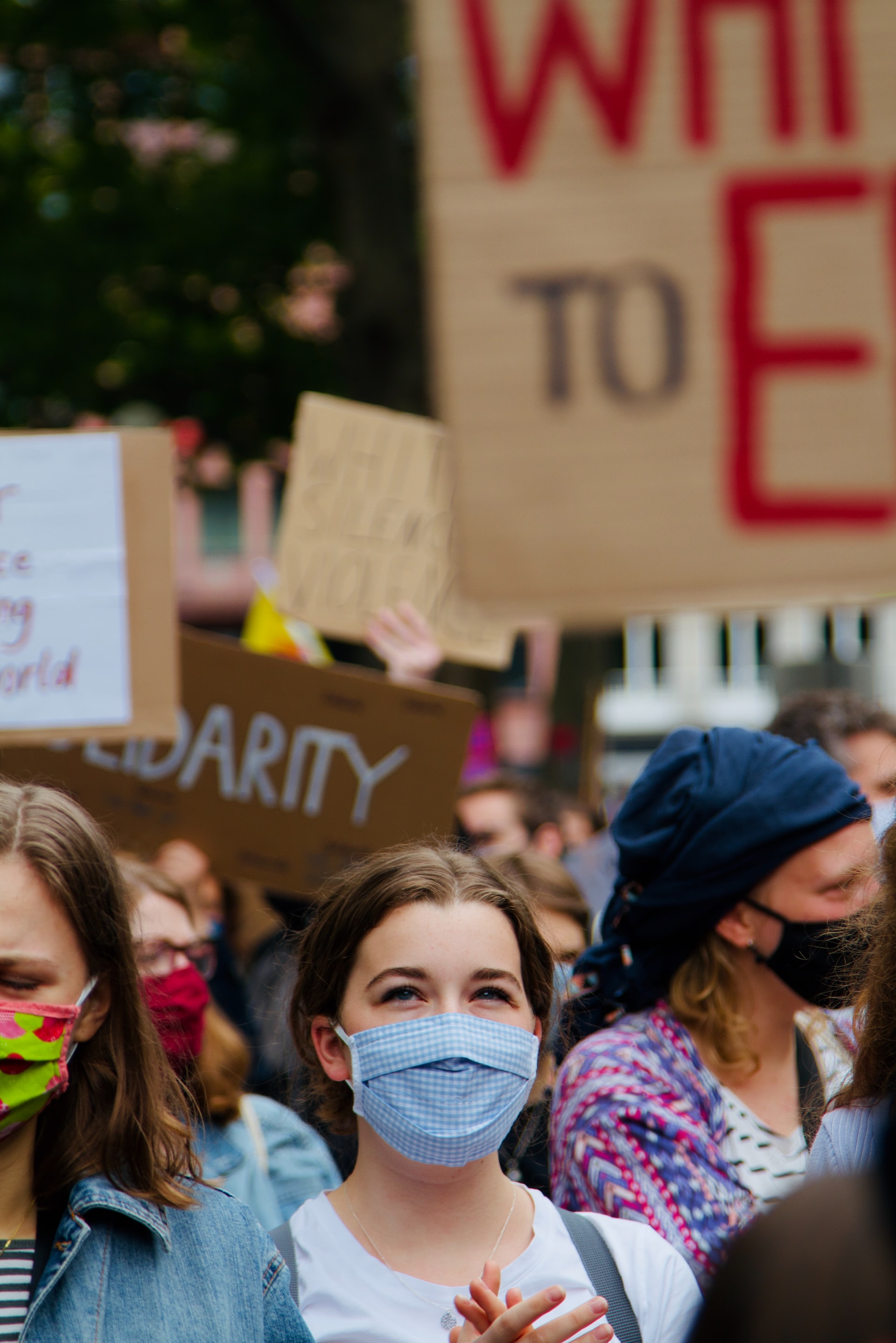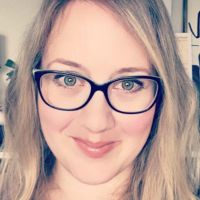
Take a breath and let your guard down.
It’s not about us. And it is.
I am not an anti-racism educator. I don’t feel I know enough to write this message, but I’m sharing it anyway because I see that silence is harmful.
I saw an article yesterday in The Atlantic titled, “The Shooting of Jacob Blake Is A Wakeup Call,” and I felt my anger rise.
How many wake-up calls do we need?
How many more Black lives will be lost as white women sleep?
I share this, as a white woman committed to learning and unlearning, for the white women who are willing to hear it and for the BIPOC (Black, Indigenous, and People of Colour) who have expressed how exhausted they are by being challenged by white women over and over again.
I am listening, reflecting, learning, and showing up for conversations on this issue because lives depend on it. I’m here to share what I’ve learned so far from the BIPOC I list below, hoping that we can all work together for the highest good of humanity.
My anti-racism work began with a powerful challenge offered by Layla Saad in her book Me and White Supremacy.
White Privilege and Defensiveness
No one can choose their skin colour. White skin comes with a kind of privilege that Black, Indigenous, and People of Colour never experience. If we cannot see this privilege, we are a part of the problem.
If we say we “don’t see colour” because we love everyone equally, then we ignore and erase the struggles of an entire group of people.
Every single day people are judged, oppressed, and harmed because of the colour of their skin.
It’s exceptionally challenging, if not impossible, to get over, or heal, a trauma that is still happening. The trauma that BIPOC are experiencing is not just a thing of the past. It’s here—now.
It’s waiting for justice for the shooting and death of Breonna Taylor. It’s unrelenting: we hear of death after death of Black men and women, and regular occurrences of missing and murdered Indigenous women.
When hashtags stop trending, and our white friends have gone silent, we must continue our anti-racism work. It’s not over until everyone talks and acts like #BlackLivesActuallyMatter. It’s not over until we fully dismantle white privilege and systemic racism.
This is work we will not only be doing for our entire life, but passing on to our children as well.
The Impact of Saying, “But Not All White Women”
I’ve said it myself.
And after listening to the many voices of BIPOC, I have come to see that this response is harmful. As white women, we have the power to raise and illuminate issues that affect BIPOC today. If we aren’t actively doing that, unpacking our own biases, and being an activist in whatever form that takes for us—our white privilege is a part of the problem.
Yes, we have suffered.
Yes, life hasn’t always been easy.
No one denies that—let’s resist the urge to make it about ourselves when many more have been voiceless for centuries.
Think of it like this:
Let’s say someone who has been hurt by a man writes a letter—a plea—to all men.
They start it, “Dear Men.”
Quickly, a man chimes in to argue, and says, “Not all men.” He wants to prove that he is the exception.
He is making it about him, instead of bearing witness to a woman sharing her pain.
Perhaps his silence about the actions of men is a part of the problem?
Instead of needing to prove that he is not one of them, couldn’t he be using his energy to stand up for this woman, who finally has the courage to share? To say, “Yes, as a man, I too need to do better. Not only they, but me. I can do better.”
And couldn’t he take time to reflect, with a truly open heart, and ask himself, “How can I do better? How can I be a part of a world where women do not have this experience and where no more Dear Men letters are needed, because no woman is suffering at the hands of one?”
Does he reply to call her a victim?
Does he tell her she should be doing her work to rise up and not complain so much?
Does he tell her there are other world issues she should be speaking to as well?
Does he tell her she’s not healed or spiritual enough?
Does he minimize her and take up space by telling her she isn’t doing enough or is somehow doing it wrong?
Does he write to her with a long list of everything he’s doing to prove that he has nothing to do with her pain?
Does he talk down to her and tell her he has the solutions she needs to heal?
How to Move Toward Healing
Part of the healing process requires having a loving witness. I have learned this from the most compassionate soul I know, author and activist David Bedrick. We all need people to hear our story, see our lived experience, and bear witness.
When someone dares to share their story and experience, we have the sacred opportunity to see them, and to honour them by sharing and illuminating their voice. By shining a light on the issues that are still affecting them every day, so that they’re not alone in standing up for themselves.
This is powerful.
This is healing.
This is community.
If we are indeed all one then what affects you affects me. I cannot turn away from your suffering without turning away from a part of myself.
If I judge you, I am judging myself.
If I shame you, I am shaming myself.
This includes all of humanity.
Spiritual enlightenment doesn’t mean rising above others’ pain and committing ourselves to focus on higher consciousness. Sometimes, it means getting down on our hands and knees with someone who is suffering, and whispering, you’re not alone—I see you. I am willing to see all of you, and ask myself what I can do to challenge the systems responsible for your struggles and disadvantages.
When Will Our Work be Done?
When we stop denying that systemic racism exists.
When there is freedom, equality, and justice for all.
When the negative impact of our ancestors’ actions are no longer causing harm.
What to Do if We’re Feeling Triggered
If you are triggered, take a breath.
A trigger happens when there’s something we see that feels distressing. It is a message, a gift.
It’s not something we need to bring to a BIPOC for them to fix. They don’t need to hear about when we are triggered by what they say or do. Expecting that from them is an emotional labour that isn’t theirs to bear.
Please bring it to a counselor, a paid anti-racism educator, or a white friend who is also actively doing their anti-racism work.
Find out what your soul is trying to tell you, because every trigger you experience around the words “white woman” has everything to do with you and nothing to do with the BIPOC using it.
What To Do if We Want to be An Ally
Don’t talk about how great of an ally you are, instead show people through who you are and what you do.
Illuminate the voices of BIPOC.
Stand beside and behind them.
Speak up when you see injustices taking place.
Be aware of what’s happening in the world.
We Must Keep Our Hearts Open
When we hear BIPOC sharing their experiences, we must open our minds and hearts to see a different perspective. Lean in and listen to the life experiences we can’t even begin to understand, through no fault of our own but by the privilege given to us at birth because of our skin colour.
Take a breath.
It’s not about us. And it is.
Can we open our hearts to see beyond our own need to be right, and our own need to be seen?
Can we see someone else without stepping in front of them and their words?
Can we hold space?
Can we be real allies?
Why It Matters
We are needed.
We are called into the conversation directly not to be shamed, but to be educated.
Not to be hurt, but to witness the hurt that others are experiencing every single day, from our action or inaction, from our voice or our silence.
Let’s not be bystanders—we must actively work to be anti-racist.
I am learning every single day.
I am reflecting and showing up imperfectly, but committed to showing up nonetheless.
I still have much to learn. I am doing the work because I was called into it a couple of years ago by BIPOC who have been working hard to dismantle and restructure the system created by individuals who oppress and harm them daily.
Who I Follow and Learn From:
If you don’t already, please follow: Layla Saad, Leesa Renee Hall, and Asha Frost. Please pay them for their work in the world. Buy their courses, contribute to the causes they share, illuminate their voices, honour their emotional labour, and tell others about them.
Do what you can to be a real and active ally.
You are needed—all of us.
Where to Start
If you want to start doing the work to help dismantle white supremacy, order the book Me and White Supremacy by Layla Saad.
Read How to be an Antiracist by Dr. Ibram X Kendi.
Join Rachel Cargle’s The Great Unlearn revolution.
Watch Robin DiAngelos’s video Why “I’m not racist” is only half the story:
There are many incredible books, articles, and anti-racism educators—seek them out!
Let Us Hear from You
If you know of other books, resources, or courses created to help white women begin to step up and do the work, please share them in the comments below!
If you have suggestions of people to follow on social media who are actively showing up to this work, please share them.
I am learning alongside you.
I am showing up imperfectly because I know that I am needed, and I know that you are needed, too.
I ask that you use the comment section as a space to raise the voices of BIPOC.
Contribute to being a helper and offer additional insights and wisdom in a way that I did not.
This article is far from complete, but it’s what was on my heart.
~





Read 3 comments and reply